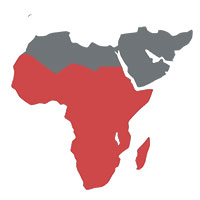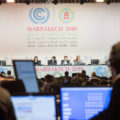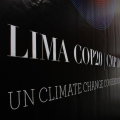Keep Rocking, Keep Rolling
Kya Lal | November 15, 2016.
Week two kicked offwith slightly more fervour than the week prior, with the imminent arrival of ministers changing the pace of the conference. Contention still hangs over the issues of finance, adaptation and loss and damage.
Debate is still rife on many issues—including finance, adaptation and loss and damage. One major contention is emerging in relation to climate finance, with developed and developing states have clashed over the definition of what counts as finance.
The various negotiation streams have ploughed through their agenda items with mixed results; with some sessions (such as transparency) closing early and others (like loss and damage) being postponed. Procedural discussions over the Paris Agreement have been particularly arduous.
Conversely, progress has been made over the support for the Marrakech Call to Action, a text released by the presidency as a result of the pre-COP to further climate action. It is being seen as a strong international reaffirmation to climate action, in light of rumours about president-elect Trump’s desire to “cancel” the Paris Agreement. Yet developing countries have raised concerns over the call, which they argue is lacking balance, reference to UNFCCC principles and language relating to pre-2020 action.
For the most part, Monday was bogged down in technical discussions with an injection of star power. Bab Ighli has been a flutter with the star studded presence that has descended upon Marrakech. With prominent celebrity climate activists rolling into town; including Leonardo di Caprio, Akon and Sean Penn. This group is far from all flash and no substance, with many utilising their celebrity status to highlight climate change and its impacts. Momentum for Change featured the collaboration between Akon and Philips, the international lighting company, in using smart technology and the Internet as a means to increase “energy efficiency” and alleviate “light poverty”.
Civil society has also been highly active, marked by the delivery of a letter backed by 375 organisations, which calls for an end to new fossil fuel development. This follows a report published earlier this year, which indicated that any new hydrocarbon extractive projects would blow the carbon budgets required to stay below 1.5°C and 2°C.
Women’s Environment & Development Organisation also launched a new application – the Gender Climate Tracker – to provide negotiators and analysts with the latest information on the intersection between gender and climate.
In further news outside of the negotiations, oceans day saw the announcement of the “African Package for Climate-Resilient Ocean Economies”. Between US$500-900 million will be raised to implement both adaptation and mitigation programs.
With ministers arriving today, and promises of many surprises to come in press conferences and announcements, week two discussions will centre around the practicalities of implementation.
With contributions from Linh Do and Daniel Voskoboynik.













comment